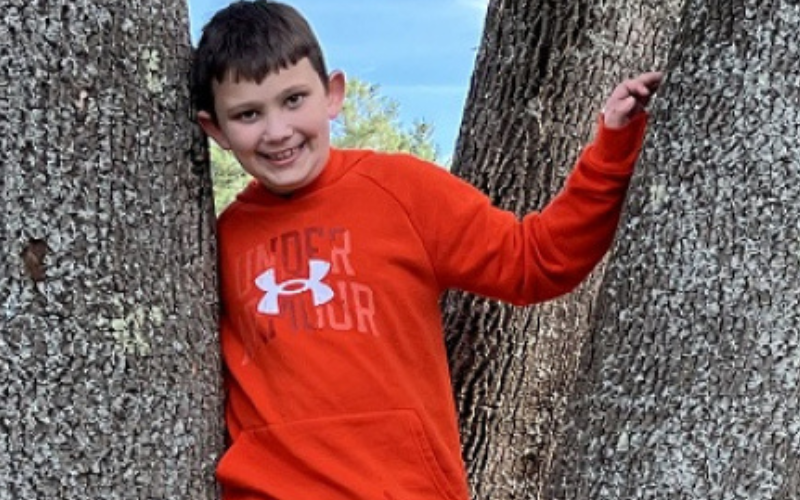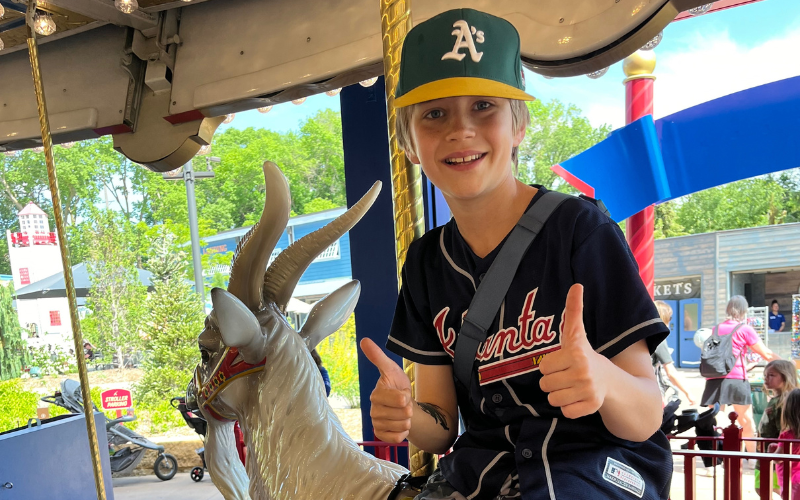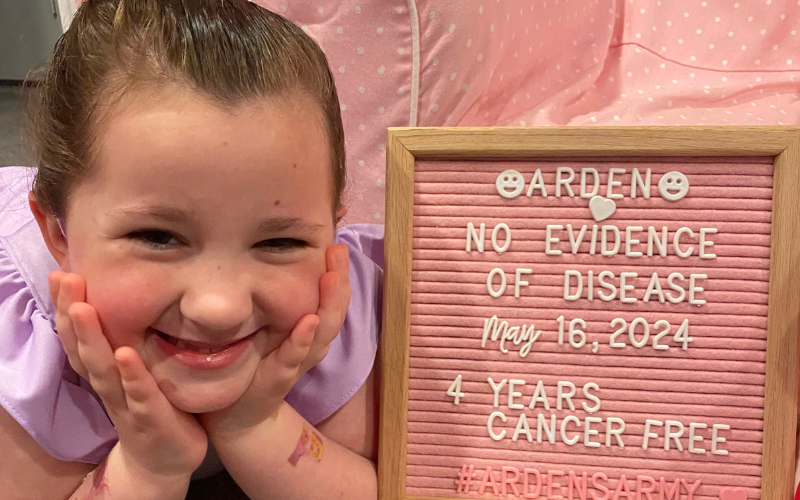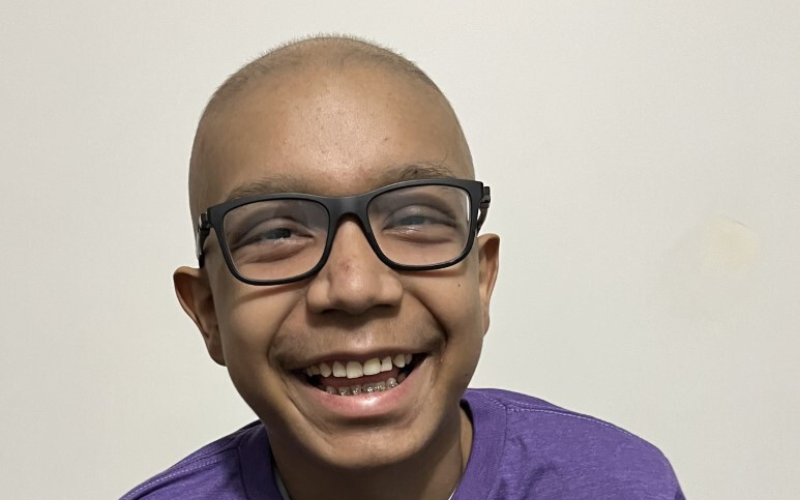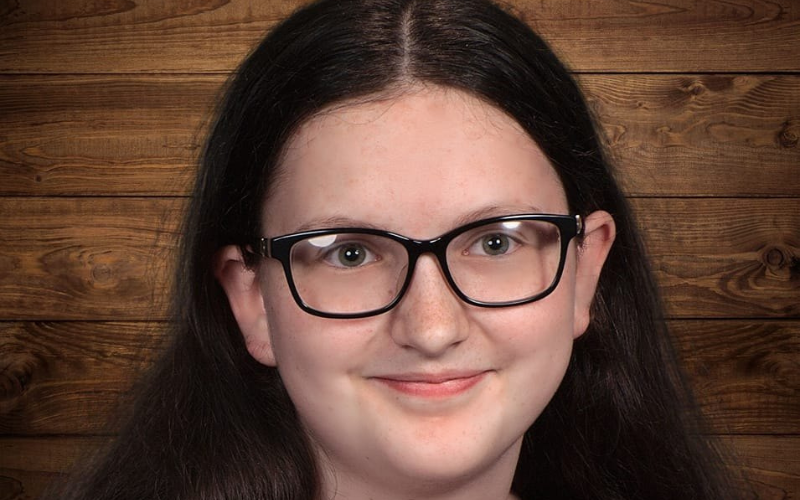By: Trish Adkins
Treatment after treatment failed Lincoln. The brain tumor he was diagnosed with just kept coming back—first in 2018 and then again in 2021. By the time Lincoln was 7 years old, he had endured several brain surgeries, three rounds of proton radiation, and two years’ worth of high-dose chemotherapy.
The tumor, called ependymoma, remained. His best shot, said his doctors, was a promising immunotherapy clinical trial for kids with relapsed brain tumors. The only problem was the distance and the expense it would take to get him from his home in New Hampshire all the way down to Augusta, Georgia. The reality of travel expenses on top of being out of work for that time bore heavy on Lincoln’s family. But with help from Alex’s Lemonade Stand Foundation (ALSF) and the Travel For Care program, Lincoln and his family no longer needed to worry about the financial burden.
“ALSF came in and helped our family in ways I cannot express,” said Diane, Lincoln’s mom.
The Travel For Care program has helped nearly 200 families so far this year get to treatment by providing airfare, hotel rooms, and gas cards. Knocking down this barrier to treatment is invaluable, especially for kids like Lincoln.
Lincoln took his last trip to Augusta two years ago—and he is still cancer free. “We are very hopeful that the clinical trial medication has turned out to be what we needed to kick Lincoln’s cancer,” said his mother Diane. For now, Lincoln is living his regular, extraordinary life as a 10-year-old boy who loves school and Legos (but hates ice cream).
For kids facing cancer, accessing treatment is one of the most critical parts of survival. ALSF helps through their Travel For Care program, as well as by funding cutting-edge clinical trials that offer hope when all other treatments have been exhausted. Meet four more childhood cancer survivors:
1. Beau
Beau was 6 years old when what seemed like a simple cold turned into weeks of fevers and concern. Medical tests were inconclusive, but finally his family had an answer: Beau had acute lymphoblastic leukemia (ALL), the most common and usually, most curable, type of childhood leukemia. Beau began grueling treatments. As he moved towards the maintenance stage of treatment, a routine test revealed abnormal white blood cells in his spinal fluid. Beau had relapsed.
A CAR T clinical trial in Philadelphia gave the family hope. The only problem: Beau lived in Denver. ALSF provided the family with travel support through the Travel For Care program. The treatment worked — today, Beaudin is cancer-free. “We didn’t know how we would cover all the costs, but when you are making these decisions – the life and death of your child – finances fall very low on the list,” said Beau’s mom Betsy.
Beau just finished the 6th grade and received a very special award from his school for his perseverance, respect, integrity, dependability, and empathy. “We are well-aware that Beaudin is who he is, in part, because of what he has been through. He is healthy and strong and starting to really make sense of how hard his childhood has been,” said Betsy.
Beau is enjoying the simple, normal parts of childhood — hiking, learning the saxophone, playing (and bickering) with his siblings and looking forward to 7th grade.
2. Arden
Like Beau, what started out as a seemingly simple virus turned into a cancer diagnosis. She was just 16 months old when a scan revealed she had neuroblastoma, a type of solid tumor. Dr. Grossmann, a pediatric oncology fellow, was guiding the family through the early days of treatment. Megan made an agreement with Dr. Grossman, that, regardless of the challenges Arden faced, he would always emphasize the little miracles throughout Arden’s treatment. One little miracle, which turned out to be a big miracle, was a promising clinical trial available at Children’s Hospital of Philadelphia, where Arden was being treated, led by Dr. Yael Mossé. Arden was a potential match, but needed more testing to determine if the trial was right for her. Testing revealed that Arden had high-risk neuroblastoma with the ALK mutation. Arden met the criteria to enroll in the trial.
And it worked. As the final portion of her treatment, which lasted more than three years, Arden completed taking a year of the trial drug, lorlatinib, in May 2023. In May 2024, Arden again celebrated “No Evidence of Disease.” Megan credits research with saving Arden’s life.
“If it weren’t for Alex, there wouldn’t be any Ardens,” said Megan.
3. Diego
Three years ago, Diego’s mom noticed that his skin and lips looked pale and he seemed tired, all the time. Then a fever and strange red dots appeared on his leg. A pediatrician ran routine bloodwork — and those results led to an emergency room visit and a diagnosis: acute myeloid leukemia (AML).
Treatment began with five rounds of chemotherapy at a nearby hospital in Las Vegas, during which Diego happened to get every side effect imaginable. His bone marrow shut down after the second dose, making other complications harder to deal with. His family decided to travel to Los Angeles for a bone marrow transplant. His donor was his 6-year-old stepbrother who lived in Puerto Rico.
That’s when his family’s social worker connected them with ALSF who were able to give his stepbrother’s family a place to stay during the transplant. The day of the transplant was the first time the two had ever met in person. The Travel For Care program also supported Diego’s family with their own lodging and gas getting to and from California.
Finally, Diego received two transplants: the first failed to engraft, but the second was Diego’s miracle. After two years in remission, he is back to school! He also works as a lifeguard and is getting ready to drive.
“We are so thankful for ALSF and for helping us through Diego’s journey,” said his mom, Alma.
4. Maisie
When Maisie Webb was two, she complained on a walk that her foot didn’t work, and her family thought she had probably just grown tired and wanted to be carried. She had been having occasional headaches and vomiting, but they did not seem too serious. Then one evening when Maisie was dancing, her foot slipped inward and she grabbed her head and screamed in pain. Her grandmother said “I will never forget that gut wrenching feeling that something was wrong, really wrong.”
At the emergency room, the source of the pain was found: a brain tumor.
Maisie’s tumor, supratentorial anaplastic ependymoma, was treated with four rounds of chemotherapy, two surgeries and proton radiation. She had her last dose of chemotherapy on her fourth birthday.
Today, Maisie is cancer-free and looking ahead to her senior year of high school.
"Driving, homecoming, proms, graduation, college are all things I hoped for her," her mom, Laniesa, said. "To see her on the brink of adulthood and setting out on her own journey is so bittersweet...She is such a wonderful young lady with a lot of life to live."

